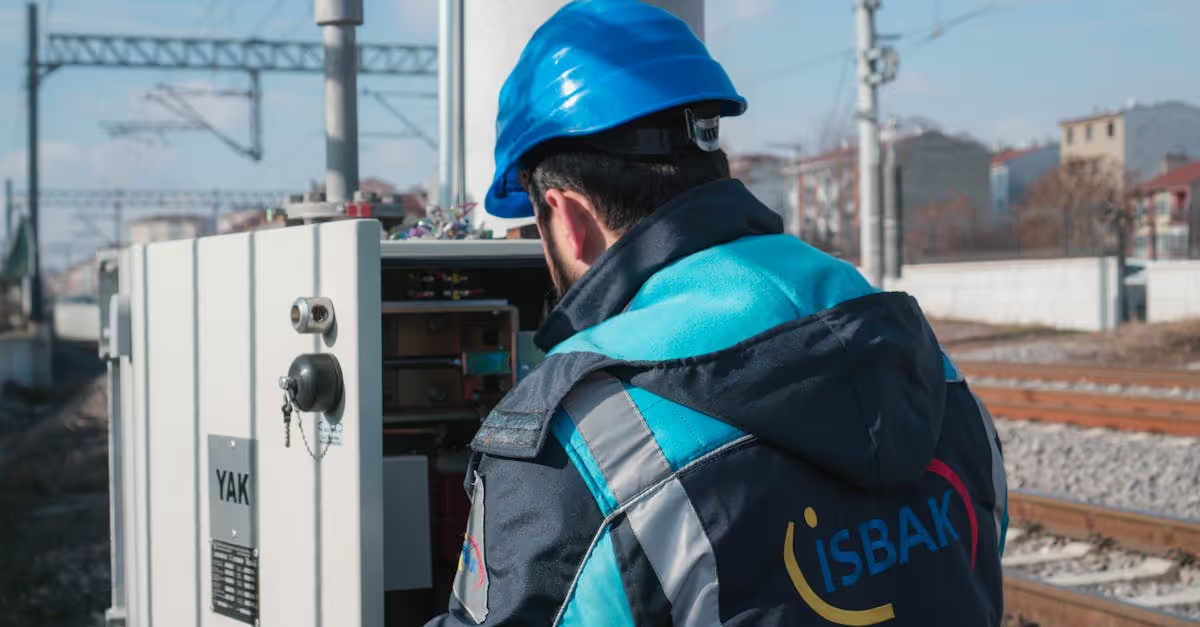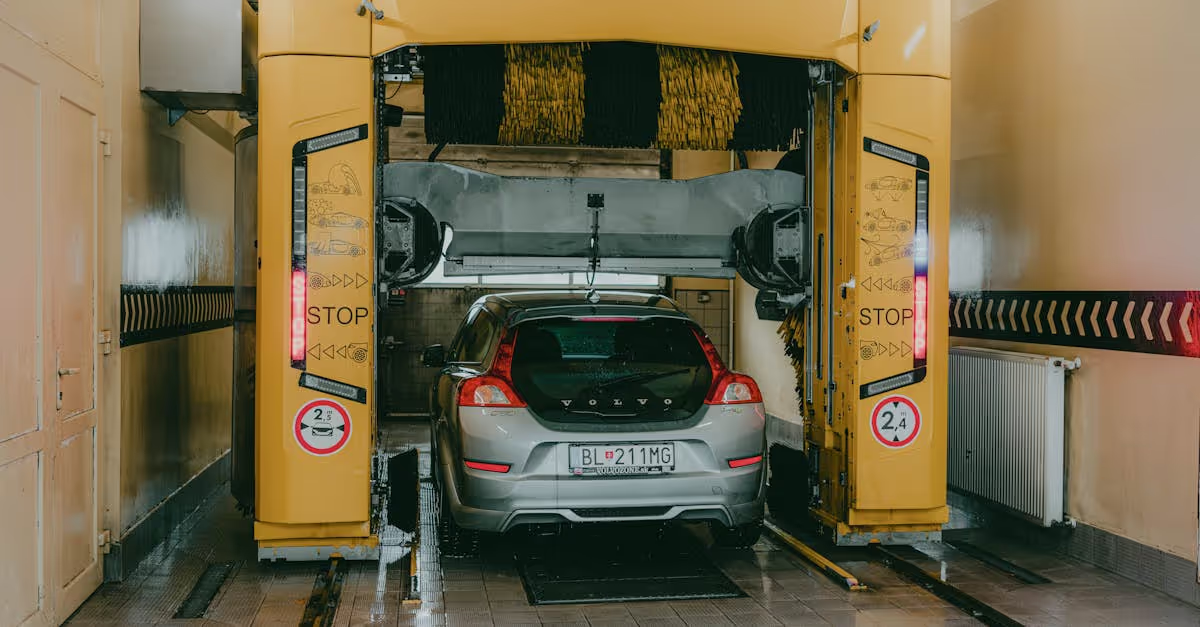Key Takeaways
- Understand Installation Types: Familiarize yourself with different pool heater types (gas, electric, solar) and their specific electrical requirements before installation.
- Emphasize Electrical Safety: Prioritize grounding and bonding to prevent electrical hazards. Consider hiring licensed electricians to ensure compliance with local safety regulations.
- Know Electrical Specifications: Be aware of voltage and amperage needs for your specific heater model to prevent electrical complications. Dedicated circuits often need to support 30-50 amps.
- Plan Installation Steps: Follow a step-by-step guide that includes assessing your electrical infrastructure, ensuring proper insulation, and using quality tools for the installation process.
- Stay Informed on Codes: Keep up with local building codes and regulations related to pool heater installations, including GFCI requirements, to avoid regulatory issues.
- Implement Routine Inspections: Conduct regular checks and maintenance of electrical connections and components to ensure optimal operation and safety compliance throughout the pool season.
As summer approaches, nearly 10 million residential pools in the U.S. become the centerpiece of outdoor fun. But to truly enjoy those warm waters, a reliable pool heater is essential. Installing a pool heater isn’t just about comfort; it involves navigating complex electrical systems and adhering to strict safety regulations.
In this detailed guide, we’ll walk you through the critical electrical aspects of installing pool heaters. We’ll ensure you understand how to maintain compliance with safety standards while optimizing your pool's heating efficiency. Whether you're a DIY enthusiast or planning to hire a professional, our insights will help you make informed decisions and enjoy your pool all season long.
Overview of Pool Heater Installation
Installing a pool heater involves several critical electrical components and safety measures. First, we focus on the type of heater: gas, electric, or solar. Each has unique requirements that impact installation. For example, gas heaters often require proper ventilation and a dedicated gas line, while electric heaters may need heavy-duty wiring and a dedicated circuit breaker.
Next, we identify where to place the heater. Heaters should be situated close to the pool, but also at a safe distance from water sources to avoid electrical hazards. Local codes often dictate placement, emphasizing the importance of adhering to safety regulations. It’s essential for us to consult these codes before installation.
When considering the electrical connections, we need to assess our existing electrical systems. The electrical panel must handle the heater’s load. We may need to upgrade our panel or wiring to accommodate the new equipment appropriately. It’s best to hire a certified electrician for this part of the installation. They can help verify that everything aligns with local regulations and standards.
Grounding and bonding are vital for electrical safety. Heaters must be grounded properly to prevent shock hazards. We can use ground rods or connect to the existing grounding system. Bonding prevents electric currents from passing through water, which is key for safety.
Signs of wear and tear on the wiring or connections should not be overlooked. It’s wise to conduct routine inspections to maintain efficiency. Catching issues early avoids safety risks and costly repairs later.
Our method of installation should also consider automation and scheduling to streamline the process. Using job scheduling software can help coordinate technician visits and streamline communication. Can we optimize our workflow with such software? Many organizations benefit from field service automation tools that enhance efficiency, ensuring technicians arrive prepared to address installation requirements.
Finally, don’t forget about additional features. A homeowner service app could enhance user experience, allowing regular monitoring of pool temperature and heater performance. We can even set alerts for maintenance schedules, making pool management less of a chore.
Importance of Electrical Safety
Electrical safety plays a crucial role in the installation and maintenance of pool heaters. Protecting ourselves and our loved ones from accidents like shocks, electrocution, and fires requires diligent attention to safety protocols.
Common Risks Associated with Pool Heaters
Several risks come with pool heater installations. Mishandled electrical connections can lead to shocks or dangerous fires. Poorly installed heaters may have wiring issues that create fire hazards or malfunction. Using unlicensed technicians can greatly increase the chances of these problems. Look for signs of improper installation, such as overheating, buzzing noises, or discoloration of wiring. These indicators suggest that something’s amiss. Is it worth taking a chance on our family’s safety over saving a few dollars?
Safety Standards and Regulations
Safety regulations protect us during the operation and installation of electrical equipment like pool heaters. By hiring licensed electricians, we meet legal standards and access the knowledge needed to maintain compliance. Installing Ground Fault Circuit Interrupters (GFCIs) within 20 feet of the pool is a must. These devices cut power when they detect imbalances, offering us an additional layer of protection. We should also bond and ground all metal components, preventing electrical currents from posing a threat. Staying informed about local code compliance not only keeps us safe, but also lets us enjoy our pools worry-free.
In a world where the fun of swimming should never come at the cost of safety, we need to stay vigilant. Let’s work together for a seamless and secure pool experience.
Electrical Requirements for Pool Heaters
Understanding electrical requirements for pool heaters is essential for safe installation. Careful attention to details keeps our pools warm and enjoyable.
Voltage and Amperage Considerations
Voltage plays a key role in pool heater operation. Pool heaters generally operate on different voltages, including 240V, 208V, and 480V. For example, a Coates Pool Heater can function on either 240V or 480V, depending on its specific model and installation requirements. Amperage is equally important. Pool heaters with power ratings exceeding 48 amps often require supplemental fusing in their circuitry. Circuit breakers or fused disconnect switches protect the main supply lines, providing crucial safety.
Dedicated circuits are vital for pool heat pumps and heaters, given their significant energy consumption. These circuits typically need to support 30-50 amps to manage the load efficiently. Complying with these electrical requirements prevents complications during summer’s peak swimming season.
Proper Wiring Techniques
Using correct wiring techniques significantly impacts the safety and performance of pool heaters. Stranded or solid copper wires are generally preferred for their conductivity. Wire size should correspond to the amperage of the pool heater, following national and local electrical codes. Proper bonding is critical for safety. Grounding all metal components prevents shock hazards—no one enjoys unexpected surprises by the pool!
Using high-quality materials for connections and junctions ensures reliability. It reduces the risk of short circuits and increases efficiency. Regular checks on wiring integrity maintain optimal operation. We can all agree that routine maintenance feels more approachable when using tools like mobile field service apps for tracking performance.
Planning ahead leads to seamless installations. Engaging technicians equipped with service dispatch software streamlines scheduling and job management, keeping our projects on track. By focusing on these electrical requirements, we create a safe and inviting atmosphere for everyone to enjoy their time by the pool.
Installation Procedures
Installing a pool heater involves following precise steps to promote safety and compliance. We guide you through essential aspects to simplify the process.
Step-by-Step Installation Guide
We start by assessing our electrical infrastructure. Identifying if our electrical panel can support the heater’s load is crucial. Checking wiring capacity also plays a significant role in this stage. Afterward, we install the necessary electrical components. Grounding and voltage checks keep our system secure. We confirm that all connections are tight and the system is properly grounded. Understanding the voltage requirements of our heater ensures compatibility with our setup. This attention to detail helps avoid unexpected surprises later.
Essential Tools and Equipment
Gathering the right tools makes installation easier. We typically need wire strippers, screwdrivers, pliers, and a voltage tester. Protective gear like gloves and goggles guards us during the process. Using a multimeter helps verify voltage levels before connecting wires. These tools, combined with field service management software, can streamline tasks and minimize errors. Automation solutions assist us in scheduling inspections and coordinating with technicians to keep everything running smoothly. Imagine the freedom of managing our pool heater installation from our mobile devices! Let’s embrace technology and enjoy a hassle-free installation process, ensuring our pool stays inviting all season.
Ensuring Compliance with Safety Standards
When installing a pool heater, following safety standards is vital for both effectiveness and safety. Complying with the right codes protects not just our investment but also our loved ones.
Local Codes and Regulations
Local codes dictate specific requirements for pool heater installations. They may vary significantly depending on our geographical location. Checking these regulations before beginning the installation keeps us from facing unexpected hurdles later on. It’s essential to know if our area mandates Ground Fault Circuit Interrupters (GFCIs) or additional bonding methods. Utilizing field service management software can help streamline the process, so we don't overlook any local requirements. Is your town one of the few that has extra stipulations for pool installations? Knowing this in advance can smooth out the installation process.
Inspections and Certifications
Inspections are a key part of safely installing pool heaters. Licensed electricians should conduct these inspections to confirm that everything’s up to code. Their certifications ensure that the installation meets safety standards. Regular checks play a crucial role in preventing mishaps like shocks, which nobody wants while enjoying a dip in the pool. We might even consider using technician scheduling tools to coordinate these inspections, ensuring we maintain compliance over time. Do you think it would be easier to have a dedicated inspector on call? Embracing service business automation can lead to peace of mind, allowing us to enjoy our pools worry-free, knowing that safety is prioritized.
Conclusion
Navigating the electrical aspects of pool heater installation is crucial for both safety and efficiency. By following the guidelines we've outlined, we can ensure our pool heaters operate effectively while minimizing risks. It's essential to prioritize compliance with local codes and engage licensed professionals when necessary.
Regular inspections and maintenance checks will keep our systems running smoothly and safely. By investing in high-quality materials and leveraging technology for scheduling and monitoring, we can enhance our pool experience. With the right precautions in place, we can enjoy our pools all summer long without compromising on safety.
Frequently Asked Questions
Why is a pool heater important for summer enjoyment?
A pool heater enhances the swimming experience by ensuring warm water, allowing homeowners to enjoy their pools comfortably throughout the summer. With over 10 million residential pools in the U.S., having a reliable heater is essential for maximizing outdoor enjoyment.
What types of pool heaters are available?
There are three main types of pool heaters: gas, electric, and solar. Each type has unique installation requirements and energy efficiency levels, making it important to choose the one that best suits your needs and budget.
What local codes should I consider when installing a pool heater?
When installing a pool heater, it’s crucial to adhere to local safety codes and regulations. This may include adherence to electrical safety standards, installation of Ground Fault Circuit Interrupters (GFCIs), and ensuring all wiring and metal components are properly grounded.
Should I hire a professional for pool heater installation?
Hiring a licensed electrician or professional installer is strongly recommended to ensure compliance with safety standards and local codes. Professionals can efficiently handle the complex electrical systems and reduce risks of shock, electrocution, or fires.
What electrical requirements should I be aware of for a pool heater?
Pool heaters typically require dedicated circuits, and they usually operate at specific voltages like 240V or 208V. Assessing your existing electrical infrastructure is essential to ensure it can support the heater's energy consumption.
How can I maintain my pool heater's efficiency?
Routine inspections of wiring and connections are crucial for maintaining heating efficiency. Regular maintenance checks, including monitoring voltage levels and ensuring proper grounding, can help prevent electrical hazards and prolong the heater's lifespan.
What tools are necessary for DIY pool heater installation?
Essential tools for installing a pool heater include wire strippers, screwdrivers, pliers, a multimeter, and protective gear. Using quality materials and following installation best practices ensures safety and optimal performance.
How can automation tools help with pool heater management?
Utilizing automation and scheduling tools can streamline the installation process and enhance user experience. Homeowner service apps allow for monitoring of the pool heater's status and provide maintenance alerts, improving overall efficiency.
What are the risks of improper pool heater installation?
Improper installation can lead to serious safety hazards, including electrical shocks, fires, and equipment damage. It’s vital to follow electrical codes and engage professionals to mitigate these risks and ensure safety.
How often should I inspect my pool heater?
Regular inspections of your pool heater and its electrical connections are recommended. Aim for at least once a year, or more frequently if you notice any issues, to ensure safe operation and compliance with safety standards.






